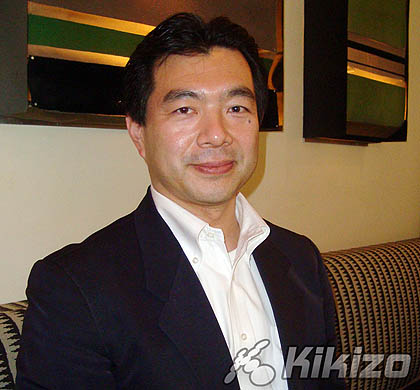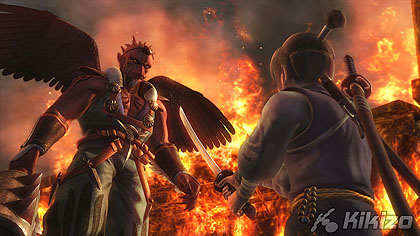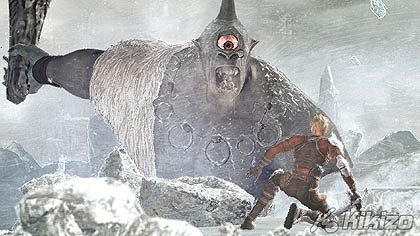Interview: Tecmo Koei CEO, Kenji Matsubara
Exclusive one-on-one discussion with the global boss of Japan's newest publisher. The product of two high profile game companies, can Tecmo Koei truly realise Matsubara's vision to become the "number one" games publisher?
Page 2
Kikizo: Even Itagaki has said he respects [Koei co-founder] Yoichi Erikawa - how does he and [wife and other co-founder] Keiko fit into the current management set-up?
Matsubara: Yes, they are board members of Tecmo Koei Holdings, and they are involved in every aspect of important decisions. In terms of this merger, first I first approached Mr and Mrs Erikawa how about having a consolidation discussion with Tecmo; they agreed with my proposal and then they initiated that discussion themselves.
Kikizo: The Tecmo IP, and particularly Team Ninja's, has always performed better in the western markets than Koei's has. How will you strengthen Koei's brands now that there's a new beginning for the company?
Matsubara: Yeah, exactly. The European and North American markets are expanding, while the Japanese market is almost the same as a decade ago! As Koei, we need to focus on titles targeting the western market, but at the moment we are not successful at doing that. From three or four years ago, we started developing software to target the western market - one example of this was Bladestorm, which established our intentions and a sort of brand image, but in terms of business we are not successful in this respect yet. We can provide a new version of things like Bladestorm within some years, so that's one thing to pursue, but since we merged with Tecmo, we can now take advantage of Tecmo's western presence. We can take advantage of its development style, and its marketing skills in the western market. This is one of the good points about the consolidation; we can now move the western advantage from Tecmo to Koei.
Kikizo: Yes, of course Tecmo has its own established marketing office in the US which has performed well for many years. So what about cross-over of the two companies' different brands? For example, Team Ninja characters featuring in Koei's products?
Matsubara: Yes, we cannot disclose at this moment, but of course, we are working on such character crossovers. Or more than that, we can develop new titles based on joined IPs, or perhaps other combinations such as one provides the game system and the other provides the IP - such a combination would be possible. But at this moment we can't disclose more than that.
Kikizo: What about product branding, will you be like Square Enix whose merged brand appears on the box, or will you follow Sega Sammy whose brands remain distinct on their respective game packaging?
Matsubara: What I think now is we'll still keep Koei Tecmo as a brand in terms of our Koei Tecmo Holdings as an independent company, we have not made a final decision and in the future things might change depending on our strategy, but now we're keeping Koei and Tecmo as [separate] brand images.
Kikizo: So we mentioned that the Japanese games industry is struggling. Apart from targeting the western market more and more, what else can Japanese companies do to survive, and to try and grow specifically within Japan again?
Matsubara: It's a good question. As I mentioned, the Japanese video game market is pretty much the same, or even is even shrinking, compared to ten years ago. But we can see a lot of growth opportunity, even within the Japanese market. The problem is that the tastes of Japanese gamers have changed so much compared to ten years ago. Ten years ago, Japanese RPGs were dominant, but the platform for this has changed in terms of online oriented services and performance. From a developer and publisher perspective, we need to reassess and cater to that, because at this moment we have not caught up to the expectation of Japanese customers, but when we do catch up, I am sure we can see the growth of the Japanese market again.
You can see that the popularity of PS3 and 360 in Japan is very small compared to the western market; it does not mean Japanese customers do not want to spend money on new game systems, it is because they don't see titles that are appealing to them; we're struggling with high performance consoles, but by contrast, the PSP has expanded very rapidly for example. Particularly Capcom titles, they capture junior high school students or young teens, who are looking to play co-op games. Co-operative play is not as popular in North American and European markets, but has become really popular in Japan in two or three years and created this kind of new market. So I would say this shows that there are many opportunities, and we still see a lot of opportunity on consoles.




















 Satoru Iwata Video Interview - the late Nintendo president spoke with Kikizo in 2004 as 'Nintendo Revolution' loomed.
Satoru Iwata Video Interview - the late Nintendo president spoke with Kikizo in 2004 as 'Nintendo Revolution' loomed. Kaz Hirai Video Interview - the first of Kikizo's interviews with the man who went on to become global head of Sony.
Kaz Hirai Video Interview - the first of Kikizo's interviews with the man who went on to become global head of Sony. Ed Fries Video Interview - one of Xbox's founders discusses an epic journey from Excel to Xbox.
Ed Fries Video Interview - one of Xbox's founders discusses an epic journey from Excel to Xbox. Yu Suzuki, the Kikizo Interview - we spend time with one of gaming's most revered creators.
Yu Suzuki, the Kikizo Interview - we spend time with one of gaming's most revered creators. Tetris - The Making of an Icon: Alexey Pajitnov and Henk Rogers reveal the fascinating story behind Tetris
Tetris - The Making of an Icon: Alexey Pajitnov and Henk Rogers reveal the fascinating story behind Tetris Rare founders, Chris and Tim Stamper - their only interview? Genuinely 'rare' sit down with founders of the legendary studio.
Rare founders, Chris and Tim Stamper - their only interview? Genuinely 'rare' sit down with founders of the legendary studio. The History of First-Person Shooters - a retrospective, from Maze War to Modern Warfare
The History of First-Person Shooters - a retrospective, from Maze War to Modern Warfare